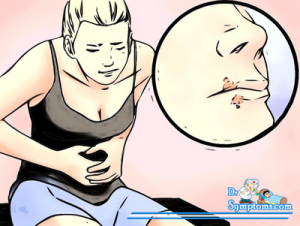There are few things so disheartening as the first tingle that warns of approaching cold sores. Whether you call them cold sores, Fever Blisters or Oral Herpes, the truth is that you’re dealing with an incurable virus.
There is no known cure for the Herpes Virus, though some drug manufacturers tout their ability to “cure” herpes outbreaks, such as cold sores. Cold sores can’t be cured, but you can deal with the symptoms and speed the healing process through the proper cold sore treatment.

What should you do when cold sores strike? The fact is that you can feasibly do nothing at all and your body will probably take care of the cold sores, even though it’s unable to eliminate the virus that causes the cold sores in the first place. The problem with this strategy is that cold sores are painful, embarrassing and contagious, and finding a medication that at least promises to speed the healing process is the best way to deal with the problem.
You’ll find a variety of both over the counter and natural remedies for cold sores, and you can even ask your doctor for a prescription if the problem is severe or persists. You’ll find that over the counter and natural Cold Sore Remedies range from only a few dollars to $20 or $30, depending on the promises made by the manufacturers.
Cold sores are caused by the Herpes Simplex 1 virus. The herpes simplex 2 virus causes genital herpes and other forms of the herpes virus that are widely known, which include chickenpox and shingles. The herpes virus is probably the most common virus in the world and it’s estimated that every adult has likely been exposed to at least one strain of the virus. Sometimes, the herpes virus remains latent and no symptoms ever appear. In other cases, the Symptoms of Herpes include sores, lesions, fever, chills, body aches and headaches. Arguably, cold sores are the most common and widespread symptom that evidences the presence of the herpes virus.
Remember that the cold sores are highly contagious. If you suspect you have the virus, be careful not to allow anyone else to touch areas that have sores or lesions. If you suspect that someone else has the virus, take steps to protect yourself.
